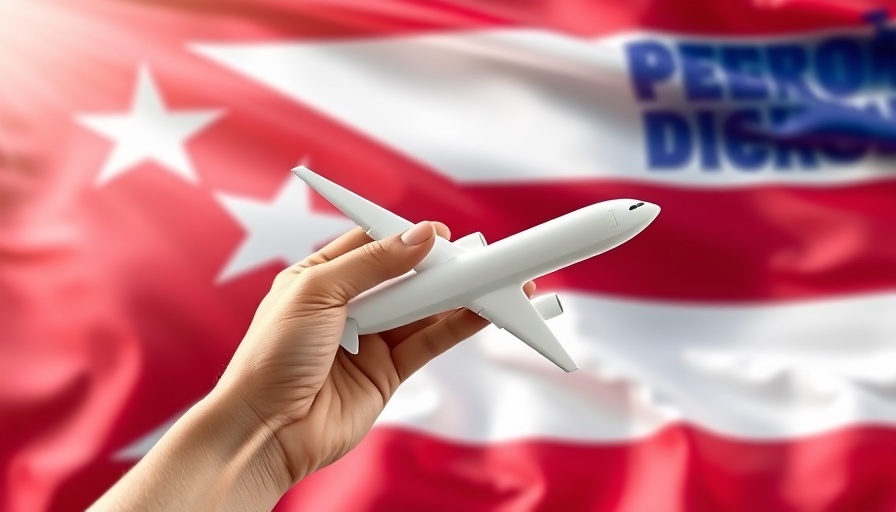
Unpacking ‘Bluewashing’ in Ecotourism
The term 'bluewashing' may be unfamiliar to many, yet its implications resonate deeply within the realm of ecotourism. Originating from the idea that enterprises promote sustainability while undermining indigenous communities, bluewashing is a deceptive marketing strategy. As travelers, we often seek vacations that promise an exhilarating mix of natural beauty and cultural engagement, only to find that the underlying practices are detrimental to local populations. Too often, what is marketed as ecotourism masks harmful realities that should prompt potential travelers to think critically about their impact.
The True Face of Ecotourism: A Historical Perspective
When ecotourism first emerged in the late 1970s, it was intended as a responsible and sustainable alternative to mass tourism. Its original goals included promoting conservation, empowering local communities, and forging a meaningful connection between travelers and their surroundings. Sadly, as the travel industry has grown, so too has the commodification of these ideals. Many companies now utilize ecotourism as a buzzword to enhance their packages while neglecting the original intentions. This trend raises pressing concerns about how we define sustainability and whose interests genuinely benefit from ecotourism practices.
Current Events: Indigenous Displacement in Ecotourism Developments
Recent events have brought the struggle between indigenous rights and ecotourism development into the spotlight. The eviction of 16 villages on Rempang Island in Indonesia serves as a stark example. This project is presented under the guise of sustainability, but at what cost? As renewable energy initiatives rise, we must examine how these developments frequently come at the expense of local populations. Disregarding the rights of indigenous communities is a grave injustice that travelers must empathize with to genuinely practice responsible tourism.
Bringing Light to the Mbyá Guaraní Project
In Brazil, the Mbyá Guaraní community faces challenges posed by the Maraey resort project. Advertised as an eco-friendly destination, the project threatens to displace the village of Ka’Aguy Hovy Porã, raising concerns about the ethics of its implementation. Developed without adequate consultation with the Mbyá Guaraní, the Maraey resort epitomizes the conflict between profit-driven ventures and respect for indigenous rights. By recognizing these conflicts, travelers can decide to support enterprises that value genuine cultural exchanges rather than exploitative practices.
Understanding the Real Impact of Your Travel Choices
As more people seek sustainable travel experiences, it’s crucial for travelers to perform due diligence before embarking on their journeys. Investigating where funds go, ensuring local communities benefit, and supporting businesses that prioritize indigenous rights can mitigate the detrimental effects of bluewashing. Travelers who choose responsible tourism not only enhance their experiences but also contribute to preserving precious cultural legacies.
Actionable Insights: How to Practice Responsible Travel
One practical approach to practicing responsible travel is to engage with local communities instead of just observing them. Seek out tours led by community members, as these often provide insight into their cultures and practices. Additionally, consider traveling off the beaten path; lesser-known destinations frequently offer meaningful cultural experiences without the baggage of overt commercialism. Lastly, research the environmental policies of hotels and tour companies seeking your business, ensuring they align with sustainable and ethical practices.
Embracing Empowerment Through Travel
Traveling holds the power to foster understanding and empathy across cultures. Visitors who take the time to learn about the indigenous communities they encounter can turn their journeys into opportunities for learning, sharing, and advocating for justice. When travelers collectively prioritize ethical tourism, they empower local communities, creating pathways for sustainability that honors the values of both travelers and the people whose lives are intertwined with these natural landscapes.
The next time you plan to explore the world, remember the stories behind each destination. Remind yourself that your choices matter and that, as a traveler, you hold the power to make an impact—both positive and negative. The essence of responsible travel lies in the recognition of shared humanity and respect for those who originate from the land you're visiting. Let’s move forward together with intention and a heart for justice.
To learn more about how your travel choices can make a difference, consider engaging in discussion with others who share a passion for sustainable living and traveling. By raising awareness about the implications of bluewashing and advocating for indigenous rights, we can all play a role in fostering a more just travel industry.
 Add Row
Add Row  Add
Add 




Write A Comment